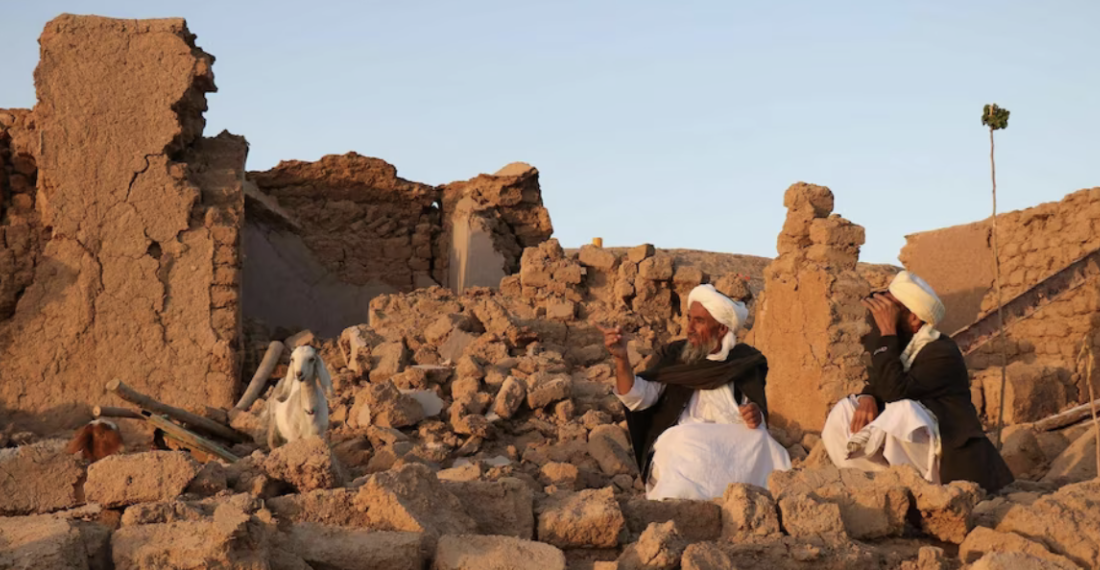The death toll from a series of major earthquakes in western Afghanistan last Saturday (7 October) has reached an estimated 2,000, according to senior Taliban officials. The disaster has also left around 1,000 people injured, with the toll likely to rise. According to the U.S. Geological Survey (USGS), the quakes, each with a magnitude of 6.3, primarily affected the western city of Herat and caused significant destruction in the region. The first earthquake struck at around 11:00 local time, 40 kilometres west of Herat city, and was followed by several strong aftershocks. Herat is Afghanistan’s third-largest city some 850 kilometers west of Kabul.
More than 1,300 houses were partially or fully destroyed in the devastated area, leaving thousands of residents in dire conditions. The tremors were so strong that they caused minor damage and one injury across the border in Iran. Rescue and search operations began immediately and continued through the night and into the following days, as emergency personnel worked tirelessly to locate survivors and provide assistance to those affected.
On Saturday, the United Nations reported 320 deaths, a figure that rose significantly as more bodies were recovered from the rubble. The Afghan authorities had initially given a lower figure, but expressed concern that the death toll could be in the hundreds.
The World Health Organization (WHO) office in Afghanistan said it had sent 12 ambulances to Zindah Jan to evacuate casualties to hospitals. “We have sent medicines and medical supplies to the hospitals to support the treatment of those wounded. Our warehouse is ready to deploy for additional medicines as needed,” WHO Afghanistan said.
“As deaths and casualties from the earthquake continue to be reported, teams are in hospitals assisting treatment of wounded and assessing additional needs,” the UN agency said.
Taliban officials appeared intent Sunday (8 October) on portraying themselves as in control of the situation. Abdul Ghani Baradar, a senior Taliban leader, said that authorities dispatched helicopters to the earthquake epicentre within half an hour and that emergency services continued rescue operations throughout the night, RTA reported.






